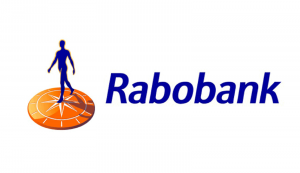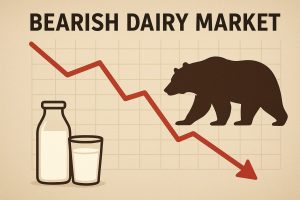
Historically, organic milk has gone for a higher price than conventional milk. Raising dairy cows under organic standards is more expensive — you can’t use antibiotics to treat cows, and have to use feed grown without chemicals.
But according to new federal data, the average retail price of a gallon of conventional whole milk is only 30 cents less than a half gallon of organic whole milk. That’s the smallest gap between the two products in five years.
And while organic milk prices are generally higher right now, organic farming organizations say the price farmers are receiving is not rising accordingly.
“Something needs to be done immediately. Otherwise, we’re going to have large numbers of organic dairy farms leaving dairy, leaving organics, returning to conventional.”
State data show that nine of Vermont’s organic dairy farms have stopped shipping milk since last year.
Organic farming nonprofits say more could leave the business, due to high feed and fuel costs, plus an increasingly non-competitive market after Horizon Organic’s parent company, Danone North America, terminated its contracts in the Northeast. Only one organic dairy cooperative — Organic Valley — is left in the area.
“Something needs to be done immediately,” said Ed Maltby, the executive director of Northeast Organic Dairy Producers Alliance (NODPA). “Otherwise, we’re going to have large numbers of organic dairy farms leaving dairy, leaving organics, returning to conventional.”
He added: “We’re in a disaster situation… producers are having to pay grain bills with credit cards.”
Proposed solutions
Maltby’s organization and others are working on several solutions. For starters, they are seeking money from the federal government to go directly to farmers.
In a letter to the U.S. Department of Agriculture’s Farm Service Agency (FSA) sent in September, NODPA and nine other organizations are asking for a “short-term targeted solution using federal funds.”
“The organic dairy industry is an important economic engine in the [N]ortheast and organic dairies serve as anchor businesses to many local rural economies,” the letter reads. “Organic agriculture is also a climate-smart system of agriculture worthy of federal investment and support.”
Maltby says the FSA has not responded. The federal agency did not return an email from Vermont Public.
In the longer-term, NODPA and other organizations want the 2023 Farm Bill to include a safety net program specifically for organic dairy farmers. Maltby says the Dairy Margin Coverage Program, based on the gap between conventional dairy prices and conventional production costs, doesn’t always work in organic dairy farms’ favor.
“If the conventional market is doing badly, then organic dairies can benefit from it by signing up. If it’s doing well like it has in the last year, then there is no coverage, because [conventional] margins have been very good this year,” he said. “And what we’re pushing for now is something that can be based on organic cost of production and organic pay price.”
“The organic dairy industry is an important economic engine in the [N]ortheast and organic dairies serve as anchor businesses to many local rural economies. Organic agriculture is also a climate-smart system of agriculture worthy of federal investment and support.”
Letter from organic farming organizations to the USDA Farm Service Agency
At the big-picture level, Maltby says there’s a problem with lack of competition in the organic dairy market.
“We just have basically Organic Valley … CROPP cooperative,” he said. “Faced a situation like this, then there is nothing that producers can do, they just, there’s no alternative there.”
Maltby says his organization and others are looking to establish a regional cooperative to market organic milk from Vermont and other states in the region.
“We’ve done studies that — and everybody has done studies — that says that such a brand is viable in the Northeast,” he said. “Some of what we’re doing now is looking at different ways that we can get the retail buyers to support the initiative … we’re hoping that with the continued support of the community of retailers, and congressional support … we can bring this to fruition within the next year or so.”
What’s happening with Horizon?
Some of the Northeast organic dairy farms currently a part of Organic Valley used to have contracts with Horizon Organic, a company owned by the multinational corporation Danone North America.
Danone North America announced in August 2021 that it would be dropping its contracts with Northeast organic dairy farms due to “growing transportation and operational challenges.” Danone North America gave those organic dairy farms initially until August of this year, and later extended until February 2023, before terminating the contracts.
In December 2021, Danone said it also offered “transition payments” to farmers, free access to financial consultants, and an offer “to work with regional stakeholders … to explore co-investment solutions that will address some of the systemic challenges related to Northeast organic dairy infrastructure.”
According to NODPA, Maine Organic Farmers and Gardeners Association, NOFA-Vermont, NOFA-New York, NOFA-New Hampshire and Organic Farmers Association, no co-investments have been made thus far. Those groups are suggesting Danone North America invest at least $20 million in the region, matching a USDA grant to the Northeast Dairy Business Innovation Center.
When asked by Vermont Public about the promises made in December 2021, Danone North America said it had “been in regular communication with local stakeholders in Vermont,” and that the company had honored all its contracts and made “additional transition payments.”
The statement provided by Danone North America did not mention any co-investment plan.























